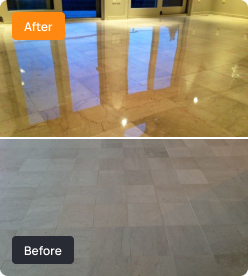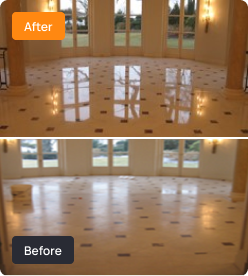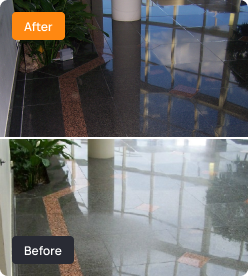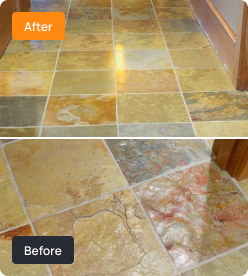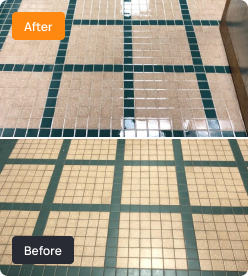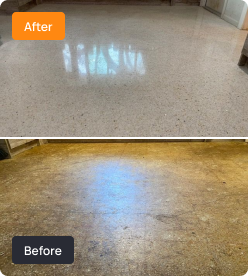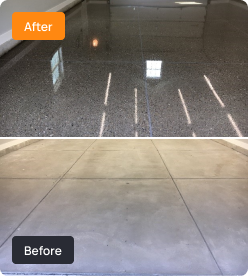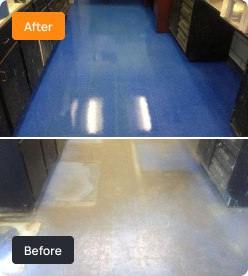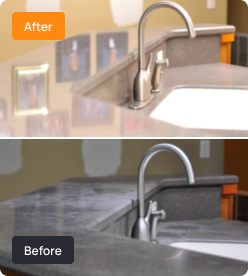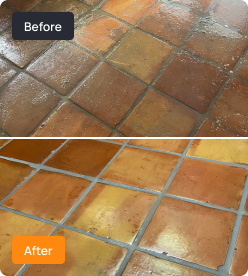Ever Wondered What Vinegar Does to Your Sealants? Let’s Find Out!
Vinegar – it’s the household hero we all know and love. Nestled between the olive oil and the salt shaker, it’s the go-to solution for everything from salad dressings to DIY cleaning. The allure of vinegar lies in its natural, inexpensive, and seemingly magical ability to tackle various cleaning tasks. BUT before you grab that […]
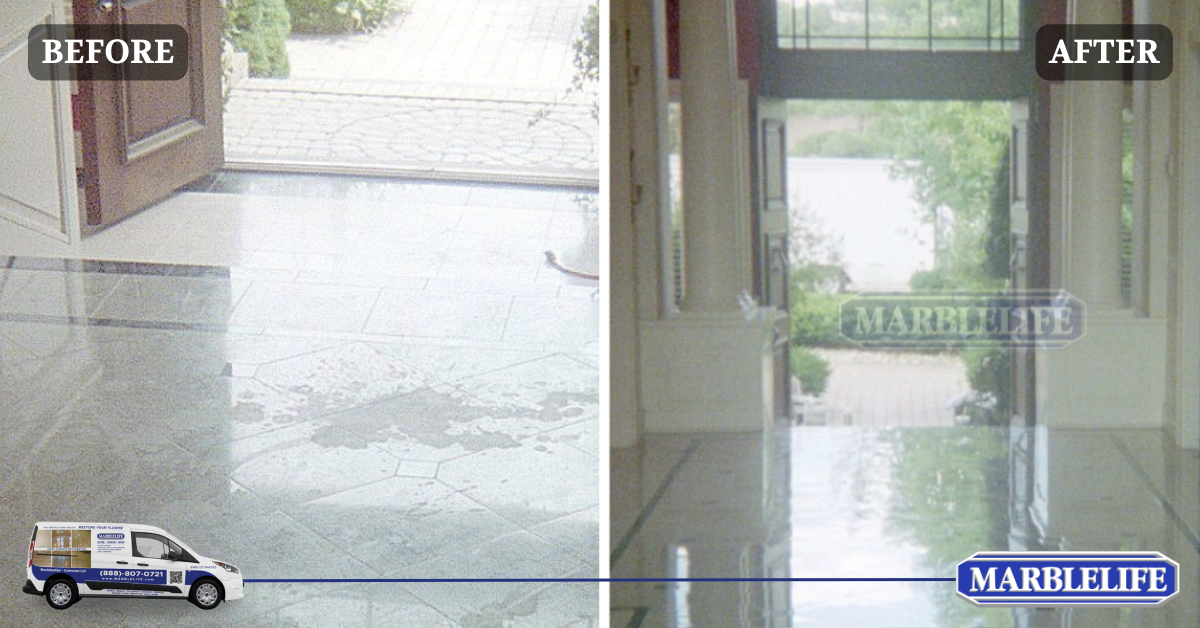

Vinegar – it’s the household hero we all know and love.
Nestled between the olive oil and the salt shaker, it’s the go-to solution for everything from salad dressings to DIY cleaning.
The allure of vinegar lies in its natural, inexpensive, and seemingly magical ability to tackle various cleaning tasks.
BUT
before you grab that bottle and start scrubbing, let’s dive into what vinegar REALLY does, especially to the sealants protecting your beautiful surfaces.
You might want to treat vinegar as a great condiment, but dispel the misplaced hype about it as a miracle cleaner before it creates your next cleaning nightmare!
The Appeal of Vinegar as a Cleaning Agent
Vinegar has been around for centuries, not just for its culinary uses but also for its cleaning prowess. It’s no wonder why it’s so prevalent in DIY cleaning solutions. It’s cheap, readily available, and often marketed as a green, eco-friendly alternative to chemical cleaners. Blogs, videos, and social media posts tout its effectiveness at cleaning everything from windows to countertops. You might have seen claims like “A splash here brightens your windows!” or “A dash there disinfect your countertops!” Sounds almost magical. It’s TRENDING, but its popularity drives the floor restoration business and its costs nationwide.
Yet, just like your favorite superhero has kryptonite, vinegar has its Achilles’ heel. It’s a great salad dressing—but an evil cleaner!
Its effectiveness is rooted in its acidic nature, which can lead to severe consequences for certain surfaces. Sure, acids can burn through or dissolve some dirt and even remove oils—but at what price? The etching of marble and removing protective seals from grout make removing stained grout difficult. Vinegar may be the single best driver for the restoration company business.
Sealants and Their Role
Before we discuss vinegar’s impact in detail, we must understand sealants and why they matter.
Sealants are protective layers applied to surfaces like grout, marble, and travertine to shield them from moisture, stains, and general wear and tear. They are available in TOPICAL and PENETRATING formats. The most used on grout and stone surfaces are penetrating. Penetrating sealers are designed to soak INTO the open pores in grout or stone and then have any excess remaining on the surface wiped away, leaving the sealer where we need it IN the pores, preventing dirt and oil from entering later. A topical would go on top as a coating. These are generally not used on stone or tile and grout as they are softer than stone and tile and will show wear more rapidly. Penetrating, see minor wear in grout lines as our feet bridge the grout line tile to tile (unless your grout has been overfilled or the floor has been leveled to the grout lines). Think of your sealer as the invisible bodyguard for your surfaces, working tirelessly to keep them looking pristine. If you want an EASY-TO-CLEAN floor or counter, then your SEALER is your enabling superhero, as you cannot achieve easy-to-clean status unless you keep dirt and oil on TOP of the surface where you can easily wipe it away.
There are various sealants, each designed for specific surfaces and purposes. For instance, silicone-based sealants are commonly used on grout to prevent staining and water penetration.
The Chemistry of Vinegar
Now, let’s talk about what makes vinegar good at cleaning—its acidic nature. Vinegar is composed of about 5% acetic acid, which gives it its strong, tangy smell and powerful cleaning abilities. This acid can break down mineral deposits, dissolve grease, and remove dirt, making it a versatile cleaning agent.
However, this same acidic property also makes vinegar potentially harmful to certain surfaces. When vinegar encounters materials like calcium carbonate, a significant component of marble and travertine, it reacts, literally dissolving away the surface. This is so quick and effective that one could press a lemon wedge into a marble table at the start of lunch and create a perfect impression of the lemon wedge in the marble surface that no cleaning will remove. You cannot wipe away a HOLE. Clean the entire surface with vinegar, and you have dulled the whole surface. You might not note it initially, but with just a couple of “Cleanings” or “moppings,” your floor will need a professional restoration or polish to restore its shine.
The Hidden Dangers of Using Vinegar on Sealants
While vinegar can be a wonder on some surfaces, it’s not always the best choice for everything in your home. Its damage to sealants and sensitive surfaces can be immediate and gradual, making it a risky choice for certain cleaning tasks.
Consider this example: You’ve just read an online tip about using vinegar to clean your shower. You fill a spray bottle with vinegar and start spraying away, feeling confident about your eco-friendly cleaning choice. A week later, you notice the grout looking dingy, but no worries, a little more vinegar should do the trick, right? Fast forward a few months, and your once pristine grout is now discolored and dull. You’ve unknowingly been eroding the sealant with every spray, and now, you’re facing a costly restoration project.
This process is so quick that professional restoration companies use acids to remove remnants of past seals when they want to recolor or reseal a grout surface. Only one application is generally needed, but damage occurs with every application.
Types of Damage
- Immediate vs. Long-term Damage: Some surfaces, like certain metals and untreated wood, might show immediate signs of damage when cleaned with vinegar. On the other hand, surfaces like grout and natural stone may not immediately show visible damage. That’s because the removal of the seal does not change its appearance. We just removed something clear. The now open pore will begin collecting dirt and debris, changing color to reflect the trapped dirt as it fills. The deterioration of the seal is immediate, while the filling up of the open pore happens over time, making it less noticeable until it’s too late. If you have been cleaning with vinegar and the grout still looks clean, reseal it immediately; otherwise, you WILL suffer from grout staining and need a professional restoration to restore a clean appearance.
- Etching and Erosion: When vinegar’s acid reacts with calcium carbonate in natural stones, it dissolves the surface layer, resulting in tiny pits and a loss of shine. This process is known as etching. Imagine you’ve just spritzed your marble countertop with vinegar to clean up a spill. Initially, it looks great, but you start noticing dull patches and spots over time. That’s the vinegar working its destructive magic.
- Impact on Grout Sealants: Grout is particularly vulnerable to vinegar. Grout sealants, often silicone-based, are designed to protect against stains and moisture. However, the acid in vinegar can break down these sealants, exposing the grout to staining. You might think your grout looks cleaner after using vinegar, but what’s happening is the sealant is being stripped away, allowing dirt and stains to penetrate more easily.
Specific Surfaces and Their Reactions to Vinegar
While vinegar might seem like a miracle cleaner, it’s essential to understand its limitations and potential risks.
Let’s say you’ve been using vinegar to clean your beautiful travertine kitchen countertops because you read somewhere it’s an excellent natural cleaner. A few months later, you start noticing dull spots and tiny pits where there used to be a smooth, shiny surface. At first, you think it’s just dirt, but no amount of scrubbing seems to help. That’s because the vinegar has etched your travertine, and now you’re facing an expensive restoration project.
Here are the specific effects of vinegar on various surfaces. We also delve deeper into safer alternatives for keeping your home sparkling clean without the hidden costs.
Natural Stone Surfaces: Marble, Travertine, and Limestone
Natural stones like marble, travertine, and limestone are prized for their elegance and durability. However, their beauty comes at a cost: they are particularly vulnerable to acidic cleaners like vinegar.
- The Vinegar Effect: When vinegar contacts these stones, the acid reacts with calcium carbonate, leading to etching. This process dissolves the surface, creating tiny pits and a dull appearance. The darker the stone, the more noticeable the damage becomes. You might see white spots or rings where the vinegar has dissolved the stone.
Here is an image (left) of a vinegar etch created when a client dropped a salad on the floor. The shape of the spill is immortalized in the stone. You can even see the wipe marks burned into the surface. This required grinding and polishing to remove. The image on the right is of an etch that has whitening effect on the stone where contact was made.
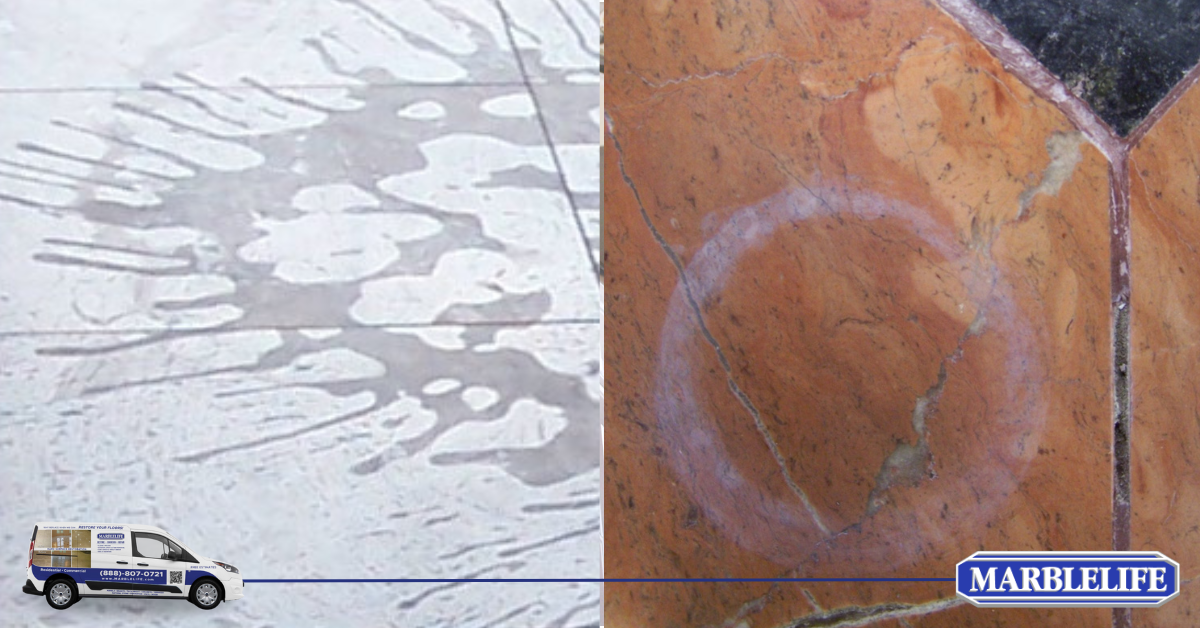
Visual Signs of Damage: Imagine you’ve just mopped your marble floor with a vinegar solution. Initially, everything looked fine. But as time passes, you start to notice dull patches and tiny spots where the sheen has disappeared. These are telltale signs of etching; unfortunately, they don’t go away with more cleaning. The surface has been permanently altered and will require professional honing and polishing to restore.
MARBLELIFE can spot-restore a floor, blending the repair into the otherwise perfect floor. This means we do not need to touch the entire surface to effect a repair, making for a reasonable service cost. However, when a marble floor has been “cleaned“ or “vinegar mopped,“ the entire surface is touched and needs to be repaired.
Tile Surfaces: Ceramic and Porcelain
Tile surfaces, mainly ceramic and porcelain, are more resistant to acids than natural stones. However, the real issue with vinegar use on tiles lies in the grout.
- Ceramic Tiles: While the tiles might withstand the occasional vinegar cleaning, the grout is another story. Grout is porous and typically sealed to prevent stains. The acid in vinegar can degrade these sealants, exposing the grout to dirt and moisture.
- Porcelain Tiles: These tiles are made from high-quality clay and fired at high temperatures, making them more vinegar-resistant. However, the grout issue remains the same as that of ceramic tiles.
- Impact on Grout: Even a single application of vinegar can begin to break down the sealant on your grout. As the sealant degrades, dirt and moisture penetrate, leading to discoloration and staining. You might think you’re cleaning your grout, but you’re setting it up for more significant problems down the line.
Acrylic and Fiberglass Surfaces
Acrylic and fiberglass are often used in shower stalls and bathtubs because they are lightweight and durable. These materials are less susceptible to acid damage than natural stones and grout.
- Vinegar Use: While vinegar won’t immediately damage acrylic and fiberglass, there are better choices. Over time, acidic cleaners can dull the finish and lead to a less attractive appearance.
- Overconfidence Risk: Because vinegar doesn’t visibly damage these surfaces immediately, you might become overconfident and use it on other, more sensitive surfaces, leading to more severe damage where it’s less expected.
Safer Alternatives to Vinegar for Cleaning
Now that we’ve seen the potential havoc vinegar can wreak let’s discuss safer, more effective cleaning alternatives that won’t damage your surfaces.
Professional Cleaning Products
MARBLELIFE offers a range of products specifically designed for different surfaces. These products are formulated to clean effectively without causing damage.
- Marble & Travertine Cleaner: Designed to clean natural stone surfaces safely.
- Granite & Quartz Cleaner: Perfect for granite countertops and quartz surfaces.
- Tile & Grout Cleaner: Cleans tiles and grout without degrading the sealant.
- Soap Scum Remover: MARBLELIFE Soap Scum Remover is excellent for removing soap scum from sensitive surfaces without scratching.
Through client interactions, MARBLELIFE identified a common but often unrecognized issue—surface damage inadvertently caused by inappropriate cleaning products. This insight emerged from discovering that 1 in 5 restoration projects stemmed from such scenarios. Recognizing a gap in customer awareness, MARBLELIFE harnessed 35 years of expertise to develop easy-to-use, streak-free, and highly effective cleaning solutions, each tailored to meet specific surface challenges and extend the life of these investments.
The Benefits of Professional Cleaning Products
Using products specifically designed for surface care has several advantages over DIY solutions like vinegar.
- Formulated for Surface Safety: Professional products are created with the surface’s specific needs in mind. They clean effectively without causing harm.
- Long-term Savings: While professional products might initially seem more expensive, they prevent costly repairs and extend the life of your surfaces, ultimately saving you money. Importunately, cheaper alternatives can lead to unintended consequences, such as the lightening of grout color, which is often a result of the cleaning product stripping away the dye from the grout.
When to Seek Professional Help
Understanding how vinegar interacts with different surfaces can save you headaches and expenses. Below, we detail when professional intervention is necessary and the benefits of leveraging MARBLELIFE’s specialized restoration services.
Recognizing the Signs of Damage
- Immediate Indicators: Some signs of vinegar damage are noticeable right away. Seeing white spots, rings, or dull patches on your natural stone surfaces or discoloration in your grout clearly indicates that vinegar has caused harm.
- Gradual Degradation: Other damage might develop more slowly. For example, you might notice that your once-shiny marble floor has gradually lost its luster or that your grout has become increasingly difficult to clean. These changes suggest that the protective sealants have been compromised.
Imagine you’ve been diligently cleaning your ceramic tile floor with a vinegar solution every week. Over time, you notice the grout looks dingier despite your best efforts. You’re puzzled until you learn that the vinegar has been breaking down the grout sealant, making it more susceptible to stains and dirt. Now, you’re faced with either living with discolored grout or seeking professional help to restore it.
When to Call in the Professionals
- Persistent Issues: If you’ve noticed the signs of vinegar damage and regular cleaning isn’t improving the situation, it’s time to call in the professionals. They can assess the extent of the damage and recommend the best course of action.
- Primary Damage: Visible etching, significant dulling, or extensive grout discoloration are all issues that typically require professional restoration. DIY solutions won’t be enough to fix these problems.
- Preventive Maintenance: Even if your surfaces seem fine, scheduling regular professional maintenance can prevent future damage and keep them looking their best. Professionals can apply high-quality sealants and perform deep cleanings that go beyond what DIY methods can achieve.
MARBLELIFE’s Restoration Services
- Etched Marble Restoration: If your marble has been etched by vinegar, MARBLELIFE can restore it. Their certified stone craftsmen use specialized honing and polishing techniques to remove etches and restore the surface’s original shine.
- Grout Recoloring and Sealing: For grout discolored by vinegar, MARBLELIFE offers cleaning, recoloring, and resealing services. They can restore your grout’s color and apply a new, acid-resistant sealant to prevent future damage.
- Tile and Stone Care: MARBLELIFE provides comprehensive care services for marble, travertine, granite, and tile. From deep cleaning to sealing and polishing, its experts ensure your surfaces remain in top condition.
The Benefits of Choosing Professional Care
- Specialized Knowledge and Techniques: MARBLELIFE’s professionals have the expertise to handle various surfaces and know the best restoration and maintenance methods. Their techniques are tailored to each material’s specific needs.
- High-Quality Products: MARBLELIFE uses scientifically formulated products that are safe for your surfaces and more effective than generic cleaning solutions. These products clean thoroughly without causing damage.
- Long-term Savings: Investing in professional care might seem costly upfront, but it saves you money in the long run by preventing damage and prolonging the life of your surfaces. Professional maintenance reduces the need for frequent repairs and replacements.
- Convenience and Peace of Mind: Knowing that your surfaces are in the hands of experts gives you peace of mind. You can trust that they will be cleaned and maintained to the highest standards, allowing you to focus on other aspects of your home.
Health and Safety Considerations
- Safety of Professional Products: MARBLELIFE’s products undergo rigorous testing to ensure they are safe for home use. They are formulated to minimize health risks while maximizing cleaning effectiveness.
- Environmental Responsibility: By choosing MARBLELIFE’s services, you’re also making an environmentally responsible choice. Unlike some DIY solutions, our products are designed to be effective without harming local ecosystems.
Takeaway
While vinegar might seem like a miracle cleaner, its acidic nature can, over time, significantly damage sealants and sensitive surfaces. Recognizing the signs of damage and knowing when to seek professional help can save you from costly repairs and ensure the longevity of your beautiful surfaces.
By choosing MARBLELIFE’s professional products and services, you invest in the health and beauty of your home. Their expertise, high-quality products, and commitment to customer satisfaction make them the best choice for maintaining and restoring your surfaces.
Don’t let vinegar wreak havoc on your sealants and surfaces. Contact MARBLELIFE today for a free consultation at 888-463-2780 and explore their specialized products designed to keep your home looking its best. Visit their website or call their customer service to schedule an appointment. Your surfaces will thank you.


